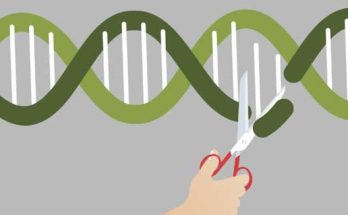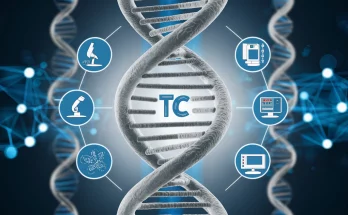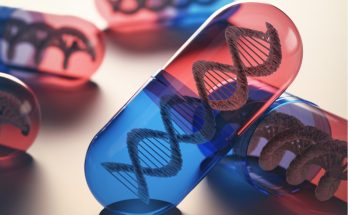Epigenetics is a rapidly growing field in genetics that explores how gene expression is regulated without altering the underlying DNA sequence. Environmental factors, lifestyle choices, and even early developmental conditions can modify gene activity through epigenetic mechanisms. These modifications play a crucial role in health, aging, and disease susceptibility. This article delves into the impact of epigenetics on human health and how it contributes to the development of various diseases.
What is Epigenetics? Epigenetics refers to heritable changes in gene expression that do not involve modifications to the DNA sequence itself. Instead, these changes occur through chemical modifications such as DNA methylation, histone modification, and non-coding RNA interactions. These mechanisms regulate whether certain genes are turned on or off, impacting cellular function and overall health.
Key Epigenetic Mechanisms
- DNA Methylation – The addition of methyl groups to DNA, typically leading to gene silencing. Abnormal DNA methylation is associated with various diseases, including cancer and neurological disorders.
- Histone Modification – Histones are proteins that package DNA into a compact structure. Chemical changes to histones can either promote or suppress gene expression, influencing cellular functions.
- Non-Coding RNA Regulation – Certain RNA molecules regulate gene expression by interfering with the transcription process. MicroRNAs (miRNAs) are key players in post-transcriptional gene regulation.
Epigenetics and Human Health Epigenetic changes are involved in numerous biological processes, including:
- Aging and Longevity – Studies show that epigenetic modifications accumulate over time, affecting cellular function and contributing to aging.
- Cancer Development – Epigenetic alterations can turn oncogenes on or tumor suppressor genes off, leading to uncontrolled cell growth.
- Neurodevelopmental and Mental Health Disorders – Conditions such as autism, schizophrenia, and depression have been linked to epigenetic changes affecting brain function.
- Metabolic Diseases – Epigenetics plays a role in obesity, diabetes, and cardiovascular diseases by regulating genes involved in metabolism.
Environmental and Lifestyle Influences on Epigenetics
- Diet – Nutrients such as folate, B vitamins, and polyphenols influence DNA methylation and histone modifications.
- Exercise – Physical activity has been shown to promote beneficial epigenetic changes that improve metabolic and cardiovascular health.
- Stress and Trauma – Chronic stress and early-life trauma can induce long-lasting epigenetic changes that affect mental health and disease risk.
- Toxins and Pollution – Exposure to environmental pollutants can disrupt epigenetic patterns, increasing susceptibility to diseases.
The Future of Epigenetic Research Advancements in epigenetics offer promising therapeutic opportunities, such as:
- Epigenetic Drugs – Medications targeting epigenetic modifications are being developed for cancer, neurodegenerative diseases, and autoimmune conditions.
- Personalized Medicine – Epigenetic biomarkers could help predict disease risk and guide individualized treatment strategies.
- Reversing Harmful Epigenetic Changes – Research is exploring ways to restore normal epigenetic patterns through lifestyle interventions and targeted therapies.
Conclusion Epigenetics is revolutionizing our understanding of gene regulation and disease mechanisms. By uncovering how environmental and lifestyle factors influence gene expression, researchers are opening new avenues for disease prevention and treatment. As the field continues to evolve, epigenetic therapies may become a key component of precision medicine, improving health and longevity for future generations.
Keywords: Epigenetics, gene expression, DNA methylation, histone modification, non-coding RNA, aging, cancer, metabolic diseases, neurodevelopmental disorders, personalized medicine, epigenetic therapy.




